OUR projects
AZAD ACADEMY
The school started its journey in the year of 2005 with the aim to fulfil the education needs of the children of its immediate local community at Khanpur and adjacent areas. The school located along the serene banks of river Mahananda, in Khanpur of Chanchal-II Block of Chanchal Sub-division of Malda district.The school runs with individual donation and with a nominal fees from students.
‘Azad Academy’ started as a school imparting education to the children from pre-primary to class IV to prepare the students to compete with the modern world. This is rare of its kind in a remote island where the project is undertaken. The broad objective behind the establishment of this school was to facilitate the local children with the quality of education. Khanpur village and the adjacent areas were suffering from the paucity of schools as the local Government school is far from the areas and also devoid of minimum facilities. Thus, establishment of a school was the felt need of the community to develop knowledge seeking behaviour among the children of the locality who were mostly the first generation learners. As per the record of the admission of the educational year 2024-25 the school has total 272 students. Good support and cooperation is provided by the parents who are indebted to KAGUS for creating an ideal atmosphere for grooming and upbringing of their child/children.
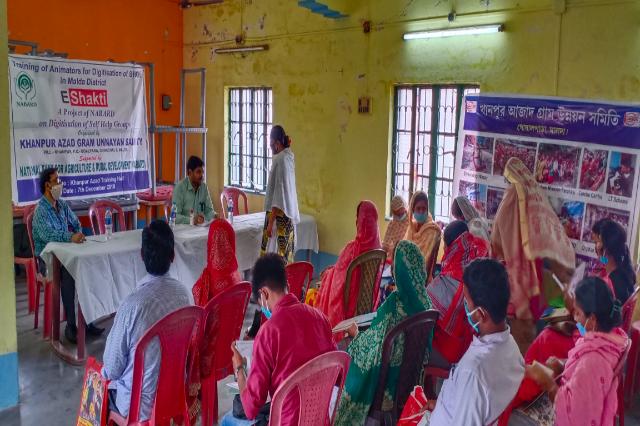
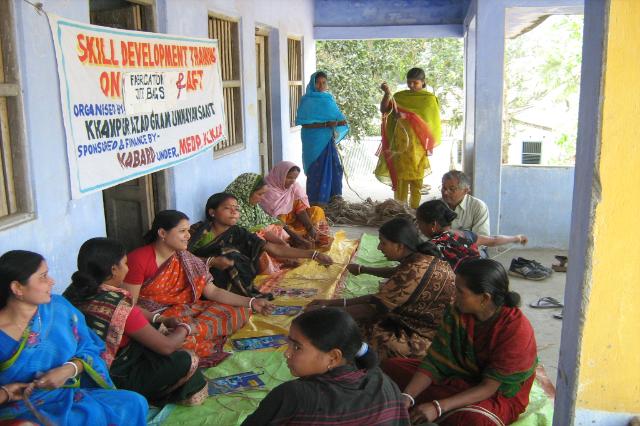
KAGUS HEALTH HOME
The KAGUS provides primary health care service to the rural and semi urban population in Khanpur and also nearby areas through the KAGUS Charitable Dispensary and equipped with the doctors, paramedical and medicine. Although the organization is not in support of establishing parallel health services, immediate need for intervention in the target area was essential. In view to that we have established a clinic at Khanpur village with an access to primary health services on every morning and afternoon especially for mothers, children and eligible couple. In that care and support team the secretary directly as doctor (Homeopathy) and three outreach workers to look after the anti-natal, post-natal, neo-natal services and there are more than 35 people are take services for their health. The KAGUS health Home covers 10 village, Sunday open 60 to 80 women and Child.
Other side KAGUS has continued the mobile clinic health checkup among the block weekly. It has also organized a Clinic Programme on Homeopathy is KAGUS campus. Different health related issues were discussed in these programmes including immunization, institutional delivery. KAGUS also organized free health checkup camps for villagers. The clinic is run with the support from benevolent individual donors. An average six hours per day clinic is open for mothers and children regularly where every month averages of six hundred patients are being treated.
The area of action where KAGUS works is remote. Access to health institutions and accessibility of qualified doctors are problematic. These programmes organized by KAGUS sensitized the civic members on different aspects of health, preventions of diseases and what should be done to remain healthy and fit. These programmes also offered free health checkup for students and their families and provided basic medicines. The purpose was to keep these children healthy and happy so that they may be able to play and study well.
Heath Checking Camp
KAGUS camps in different districts of West Bengal, and community clinics have provided medical assistance to a great number of underserved people. KAGUS initiated an emergency response team distributing food packets to counteract the risk of malnutrition and starvation during the pandemic. Illitracy, poverty,and lack of awareness are the major reason behind menstruation still being a taboo in the Indian Society.A woman’s menstrual health is crucial to her wll being of her family and community.But too often especially in developing world mindsets,customs and institutionals biases prevent women from getting menstrual health care. KAGUS works first to break the taboo by creating platforms for discussion and thus makes community aware of this basic need and motivates them and distribute the sanitary napkins to keep menstruation hygiene to most priority for women.
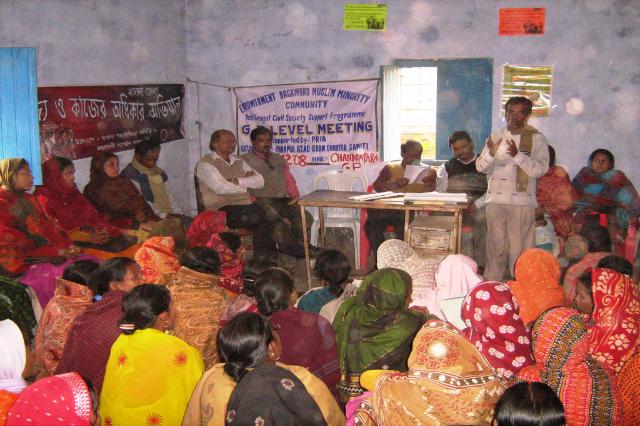
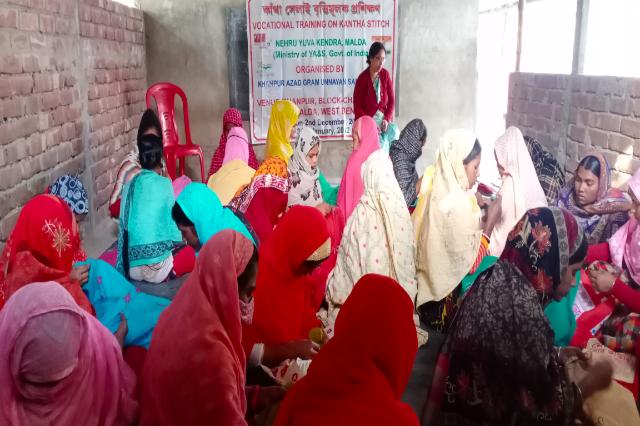
EYE-TESTING CAMP
An eye check-up camp for underprivileged communities at the KAGUS office on 16/01/2023 & 27/01/2023 from 9 a.m. to 1 p.m. The objective of this camp was to spread awareness of eye disorders, early detection of ailments, and refractive errors, and provide corrective glasses free of cost to underprivileged communities. A team of four members from the hospital visited the venue. Eye specialists Dr.Ramkrisna Yadav attended to 109 Patients. The beneficiaries attending the free eye camp were evaluated for vision (refractive error) and eye ailments. Some of the people were also provided eye drops for eye lubrication and free medicines. The members and employees of KAGUS coordinated for the success of this camp. People were very happy after the camp because these camps with medical experts on hand saved them a lot of time and energy from their hectic schedule. Here are some concise glances from the campsite.
CHILD PROTECTION AND CHILD RIGHTS
Rajiv Gandhi National Creche Scheme for the Children of Working Mothers
With increased opportunities for employment for women and the need to supplement household income more and more women are entering the job market. With the breaking up of joint family system and the increased phenomenon of nuclear families, working women need support in terms of quality, substitute and care for their young children while they are at work.
There has, however, been very slow growth of Crèche/ Daycare facilities, resulting in failure to meet the needs of working mothers in terms of extent, content and quality of services. Crèche and Daycare Services are not only required by working mothers but also women belonging to poor families, who require support and relief from childcare as they struggle to cope with burden of activities, within and outside the home. Effective day care for young children is essential and a cost effective investment as it provides support to both the mothers and young children. It is also a protection measure as it addresses issues such as child labour, school drop outs, child prostitution, outreach for medical and health programme female literacy etc., Hence, there is an urgent need for improved quality and reach of child day care services for working women among all socio-economic groups in both in the organized and unorganized sectors.
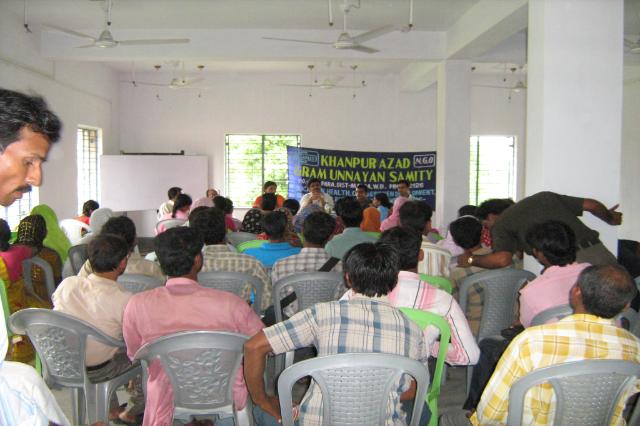

RAJIV GANDHI NATIONAL CRECHE SCHEME
Creche is a protection measure as it addresses issues such as child labour, school drop outs, child prostitution, outreach for medical and health programme female literacy etc., Hence, there is an urgent need for improved quality and reach of child day care services for working women among all socio-economic groups in both in the organized and unorganized sectors.
KAGUS has been running the Crèche Centers with the purpose of providing care and support to the children of poor families, where both the parents leave home for labour work during the day. KAGUS has currently run four Churches Centre in Chanchal-II Block of district of Malda. They are located in Khanpur, Jadupur, Kandaran and Kistoganj villages. Every Centre has two nos. crèche mothers and 25 nos. of 1-5 year aged children. More than hundred working mothers are benefited by these centers, provided with education training, regular health Checkup with medical care and immunization and supplementary nutrition.
AMBEDKAR HASTSHIP VIKAS YOJNA (AHVY)
Handicraft sector is contributing substantially in employment generation and export but this sector has suffered due to very nature of being unorganized with additional constraints like lack of education, capital, poor exposure to new technologies, absence of market intelligence and poor institutional framework. To organize the groups of artisans in to self-reliant and user friendly Community Based Enterprises (CBEs) based on the philosophy and principles of self-help and cooperation.
KAGUS is working with potential artisans who have the capability to manage things professionally, by providing basic inputs and infrastructure support in addition to capacity enhancement to cater to target markets. The activity involves making identity card to the artisan, providing support to their Design Development to facilitate better marketing and promotion of marketing by fair, exhibition etc. Cluster wise a total no. of 261 artisans has been identified for capacity building under AHVY program, clubbed into 26 SHGs. 50 no. of artisans has been trained on the upgraded technology and new design of handicrafts.
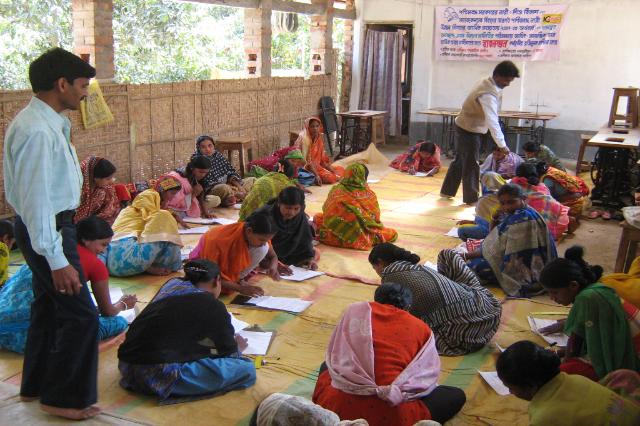
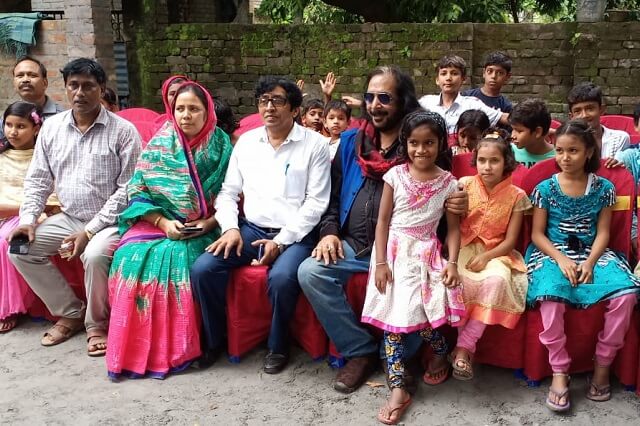
ROGI SAHAYATA KENDRA
(A may I help you Centre- to RSBY and Swastha Sathi member service.)
KAGUS is implementing Rogi Sahayata Kendra at four Hospital of Malda district at Chanchal SD Hospital, Malatipur RH, Masaldaha Bazar RH, Araidanga BPHC to help RSBY and Swashtha Shathi card holders with support of Malda District Health and Family Welfare Samity under NRHM. Para with support from National Rural Health Mission and Health Dept. Govt. of West Bengal with a view to providing information about the services available in the health facility to all clients and stakeholders. To disseminate all patients related information to patients and relatives on a real-time basis so that they may access the available services fully and without delay, and to assist the service providers of the health facility of Govt. by appropriately guiding the patients/visitors. Time of functioning is 8 am to 8 pm. i.e. 12 hours in two shifts 6 hrs. each shift.
FOOD DISTRIBUTION
Food is a basic necessity and having access to it is a right. Imagine going without food for a day. It’s almost impossible for us to survive a single day without food and yet, there are so many children who starve for days. We don’t just provide food; we provide nutritious food that takes care of their overall well-being. It fills our hearts with joy every time we feed a poor. It’s amazing what happens when we respond to the nutritional needs of communities. Answering the call of hunger is the key to unlocking hope for many. What we have found is that, when coupled with quality educational opportunities, proper nutrition is one of the most reliable factors to determine a child’s ability to succeed. More often than not, people receive their best meal of the day. In this way, food can become the catalyst that sparks the change for marginalized populations.
We never imagine that a tough time would come but it does and at that time we want to be prepared to help overcome the situation it has caused. In KAGUS we have tried to help as responsible organization. At that moment KAGUS decided to distribute rations (food and other item packs) in 10 places to 1020 families which provided almost 6000 to 7000 people with food during difficult times. Our Ration packs consisted of the following items, rice, wheat flour, onion, potato, dal, sugar, salt, oil and soap.
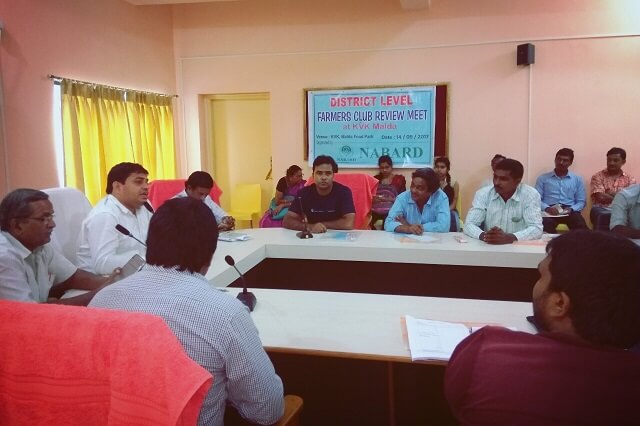
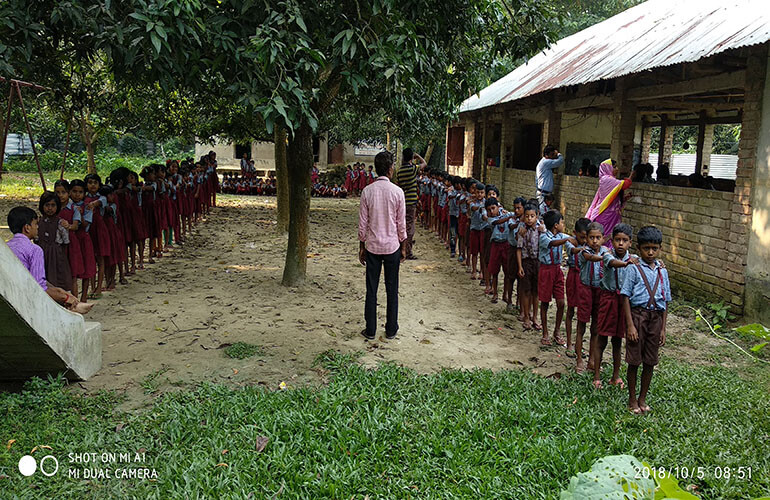
CLOTH DISTRIBUTION
Food, Cloth and Shelter are the three basic needs of common people. Many of India’s poor and underprivileged lack adequate clothing. KAGUS takes a step to provide clothes to the people in rural areas of Malda. Throughout the year we have worked with some of the most impoverished and marginalized communities. KAGUS distributed the basic clothing i.e. saree and lungi throughout the year. KAGUS is very active in relief work in areas affected by the harsh cold weather. To provide them with warm winter packages to save those suffering from the severe winter season. Blanket, sweater, and other winter items are included in the winter package for each individual. We have reached out to those people who are homeless or vulnerable in other ways to support them. We worked closely during the cold winter months to provide support to those who work in their shelters.
GYMNASIUM HALL AND VOLLEY BALL
The KAGUS has been we received the sum for development of our society‟s infrastructure from the sports department (Govt. of WB). Our Samity works at incomplete gymnasium hall. For the gym hall development local MLA (Kharba) supported the fund and we have worked in the same in this year. Multi Gym and Volley Ball Indoor: For physical development of youth KAGUS has arranged a set up for Multi Gym with support of Govt. of West Bengal. The organization has a volley ball court. Inter district volleyball competition is arranged after a schedule interval. The local youths actively participate in the game. Sometimes coaching for volley ball was arranged on behalf of organization. The dimension of the gymnasium hall is 30 by 30 ft and the volleyball ground is 90 by 60 ft.
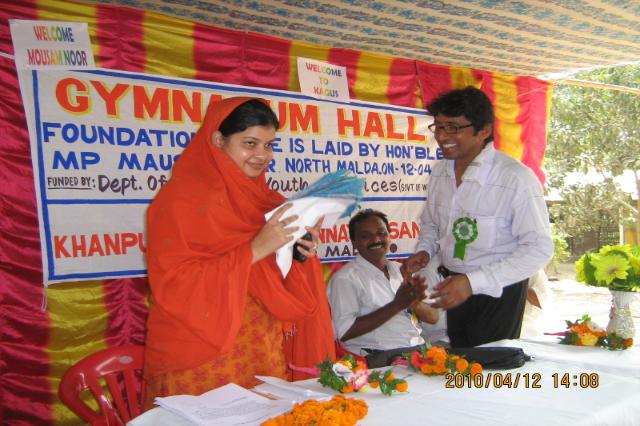
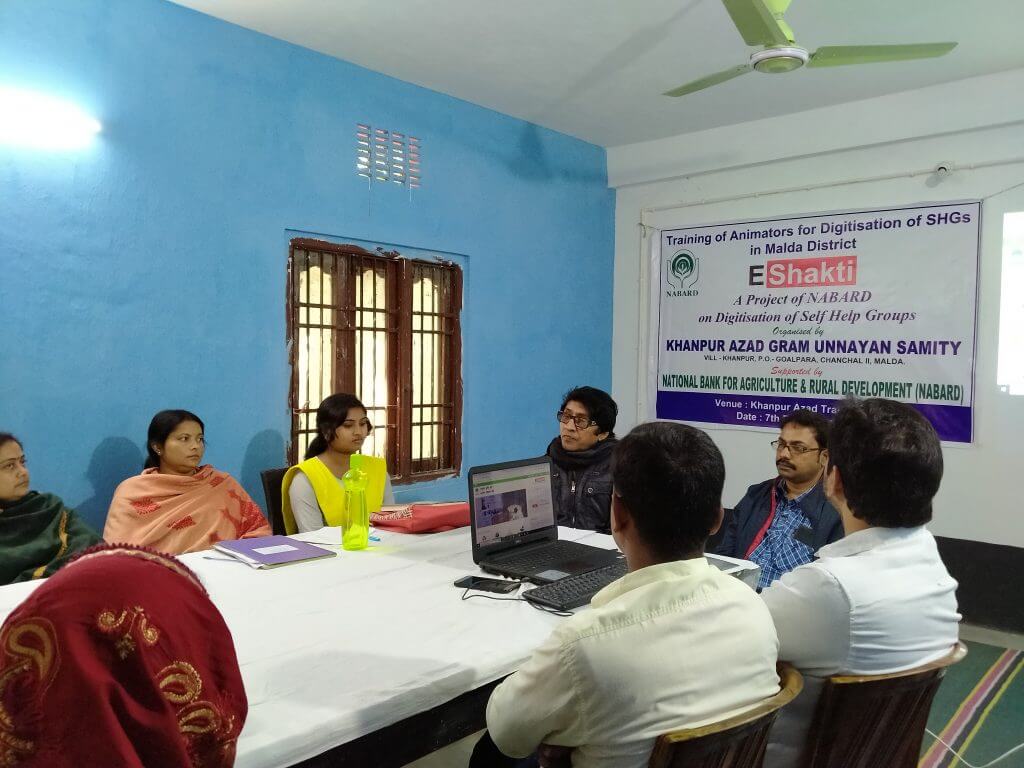
E-SHAKTI PROJECT, NABARD
E-Shakti is a Project for digitization of SHGs was launched by NABARD in the year 2015 for the digitization of all members of Self Help Group (SHG) in India. The project aims to bring all SHG members under the fold of financial inclusion thereby helping them access wider range of financial services. E-Shakti is designed to capture the demographic and financial profiles of members, including their identification data like Aadhaar and EPIC (Electors Photo Identity Card). The USP of the E-Shakti project is „one-click‟ availability of the social and financial information of the Self Help Groups maintaining Saving Bank accounts with the banks.
In the initial stage of the project involves capturing master data of all the SHGs that includes financial and non-financial information of the SHGs and their members. The SHGs are considered “on boarded” once the data is uploaded to the dedicated server for the project. The next stage in “on mobile” when financial data of the SHGs is downloaded and confirmed through “E-Shakti” App loaded on Android-based mobiles. The project reaches “go live” status when all the pending transactions are brought up to date.
Subsequently, uploading of the current transactions takes place, regularly on a monthly basis. KAGUS has functioning as Program Facilitating Agency for NABARD E-Shakti project. Currently, the digitalization work of 1020 SHGs is regularized by KAGUS which covers about 12240 families. Various Animators are doing a very good job of data collection and data entry work.
SABALA MELA
Sabala in a comprehensive programme on Adolescents centrally sponsored program of Government of India initiated under Ministry of Women and Child Development. KAGUS got the opportunity to participate in the Sabala Mela held at Chanchal Siddheswari Institution (CSI), Chanchanchal, Malda. Various posters and other IEC materials were used for the awareness generation on the issue on child and adolescents. Free counseling was provided on exclusive breast feeding, child nutrition, health and hygiene during adolescence etc.
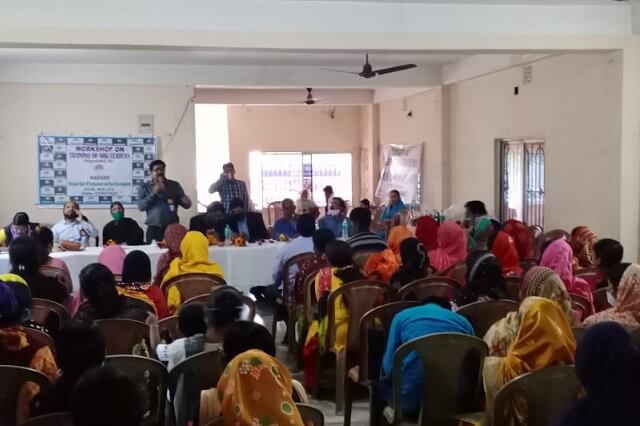
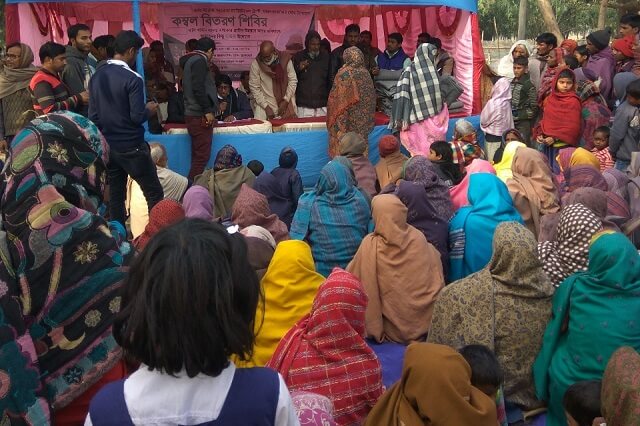
SWACH BHARAT MISSION
With the financial support of Malda Zilla Parisad, KAGUS has constructed a total of 1050 latrines in Chalchal-II block. Around 5,000 people in different Panchayet of Chanchal-II block have reaped benefits of these individual latrines. This has not only helped making these villages cleaner and hygienic but have also immensely contributed to reduction of diseases, particularly water borne diseases and improved the health conditions of the beneficiaries. Moreover the villagers have developed a healthy habit of not using the open space for defecation and use the latrines. Privacy and safety of women has increased and they are happy to have this asset in their homes.
SAFE DRINKING WATER
KAGUS has been working to provide safe drinking water to the rural population over the years. The organization is working also for safe drinking water and sanitation since its inauguration till today. KAGUS has been implementing Tube well, Submersibles with Tank, Water tank constructed for drinking water. Under this intervention, new drinking water storage tanks are constructed. Bore wells have been dug based on the existing aquifer in the village, new drinking water wells excavated. Besides, submersible electric pumps have been installed in the bore well to pump the water to storage tanks. With the support of AL Hedaya Charity Association, Kuwait And Kuwait Embassy it has installed 300 tube wells and 24 water tank for drinking water. Hand pump fitted Tube wells are the major drinking water sources in in rural areas of Malda district. These tube wells provided safe drinking water for the people of these villages. This led to decrease in common ailments particularly water borne diseases. This also triggered a change in behavior of health and hygiene. The main objectives of the project are community is made aware to manage the safe water sources from contamination and maintain sanitation. And minimize chances of– waterborne diseases. Sensitization on usefulness in maintaining hygiene practices for safe drinking water were provided as a part of the program. The project aspires to: increase the access of potable water to the community; prevent contamination of water sources; behavioral change amongst people concerning water utilization. Under the Water Security Project, to improve access to potable water, various interventions.
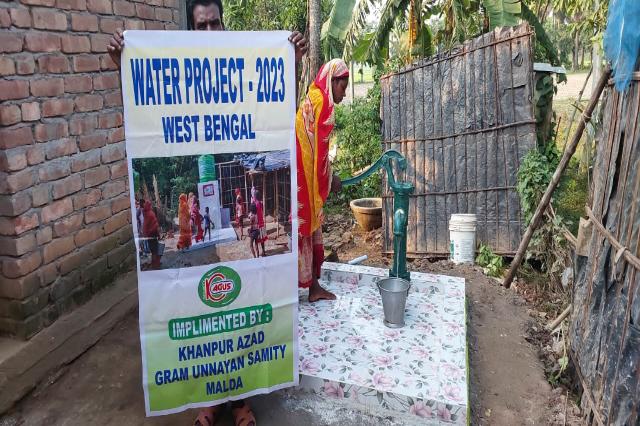
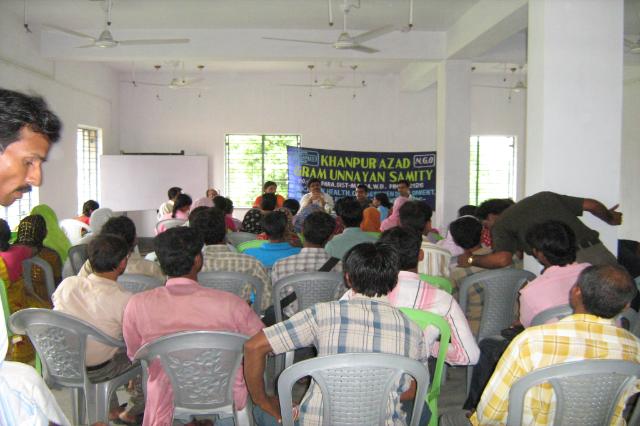
ORPHAN HOME
In our orphanages, each student is given quality moral and modern schooling to the highest local standards, provided with all required facilities for decent living, supplied with a minimum of three meals a day, offered with proper medical treatment and counseling, individually cared for by fully qualified and trained caregivers, mentored by experts in different disciplines. In the orphan home poor orphans consistently provide them not just food, education, and shelter, but also instill morals to help our children grow, learn, and eventually become independent. In addition to taking care of the physical health by having Doctors, Nurses, and Ayas to support thousands of human beings within its premises, Sivananda Saraswathi Sevashram also takes care of mental health needs such as counseling, outdoor activities, keeping the environment clean with greenery and so on thereby resulting in upbeat perspective of life for everyone.
PC and PNDT
To realize a gender balance in society by eliminating female feticide/ infanticides and ensuring the right of girls to equality, identity, survival and citizenship. KAGUS has been working in some area of the Burdwan District to implementing the various activities like USG Clinic visit, awareness meetings at wards, College Sensitization programme, Save the Girl Child Meeting etc. under PC and PNDT Project as DH and FWS, Burdwan. In this scheme we have targeted in this year by the DH and FWS, Burdwan is 166 USG Clinic visit, 135 awareness meetings at wards, 19 College Sensitization programme, one Save the Girl Child Meeting. The purpose of the programmeIs Community and identified stakeholders such as adolescents, newly-wed couples, families and frontline service providers practice positive behavior demonstrating increased sensitivity towards the value of a girl child, genderbiased discrimination and violence in their communities. Furthermore, improved response by the govt. on the protection of girls and the implementation of the PC and PNDT Act.
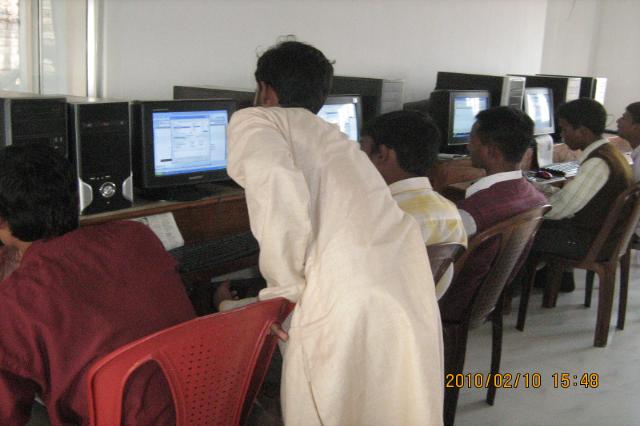
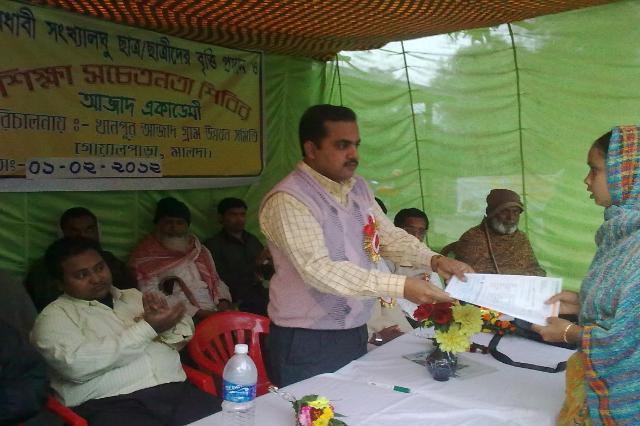
HIV-AIDS PPTCT
The PPTCTC project implanting at 13 ICTC with 5 ORWs and one coordinator at various ICTCT of Malda and Darjeeling district follow up and linkage ANC HIV positive mothers with ICTCT, ART to prevent HIV of their new baby. More over 200 ANC and PNC mothers are under this project. Identified HIV+ ANC Mothers at ICTC and follow and counseling her to take CD4 count, start ART and continue, Institutional delivery, getting NVP baby DBS test, feeding care, start and continuing CPT. After 18 month of child age getting to Rapid test and save it from HIV reactive. More than 300 HIV+ ANC mothers and 300 Childs are getting services in this project to long life them.
The overall goal of the society to enhance the bargaining power of the Communities by strengthening their capacity through knowledge and information so that they are able to access rights and justice as well as build awareness about the social taboos prevailing in their community that hinders them from availing the public services and their development. The focus areas of the project was i) Facilitating empowerment of the socially excluded for their active participation in political processes and local decision-making; ii) Enhancing opportunities / options for generating opportunity both material and social. Interventions taken up included awareness campaigns on food and livelihood rights; Sensitization workshops on government‟s policies and schemes; Workshops on RTI, Child Rights, Prevention of Child Marriage, Right to Education, Right to Health; Review meetings to monitor and evaluate implementation of the food and work schemes within the Panchayet etc. The KAGUS has been working on the creating awareness on the necessity of the use and SAVE pure drinking water among the massages. It also has been working on the fatal effect of reckless measure of underground water.
AMBEDKAR HASTSHIP VIKAS YOJNA (AHVY)
Support for environmental review of craft processes and corrective measures should be made a part of existing schemes, especially the Babasaheb Ambedkar Hastshilp Vikas Yojana (BAHVY). Handicrafts constitute an important segment of the decentralized/ unorganized sector of our economy. Originally, started as a part time activity in rural areas, it has now transformed in flourishing economic activity due to significant market demand over the years.
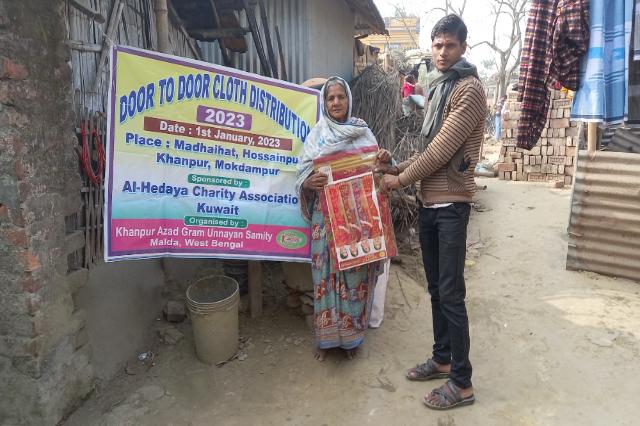
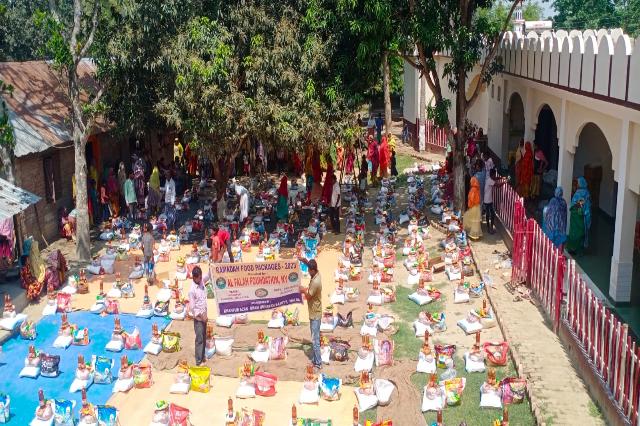
VOCATIONAL TANNING & WOMEN EMPOWERMENT
KAGUS started has been working to improve the livelihood conditions of the poor people of the area through the SHGs. It has taken up several incomes generation initiatives to ensure that the members of the SHGs become self-reliant and earn additional income to support their families. KAGUS has primarily channelized the fund from its own coffers and with contribution from beneficiaries. Training was provided to SHG women. KAGUS then supported these women to take up livestock rearing as income generation activity. These activities included Ketha Stich, Beautician etc. These income generation initiatives to develop livelihood options for SHG women have gone a long way not only to generate income but also plan and organize resources so that these can give sustained benefits. KAGUS always emphasizes to develop the skills and capacity of the worker through training, workshop and exposures. As skill up gradation trainings alone have limited impact on livelihood creation among the SHG members, it was thought prudent to create sustainable livelihoods
The members of the SHGs taking up these activities have also increased their confidence in their efforts and turned self-dependent in many aspects of their family lives. Their efforts have involved other members of their family in their pursuit to be economically self-reliant. The increased income for the family was and is being used to meet different needs like education, health and even family celebrations like marriages. Most of the livelihood activities were done in Chanchal-II block area. SHG women were trained by KAGUS on Ketha embroidery. After the training, they were provided with hens, ducks fish seeds to earn income through small business venture.
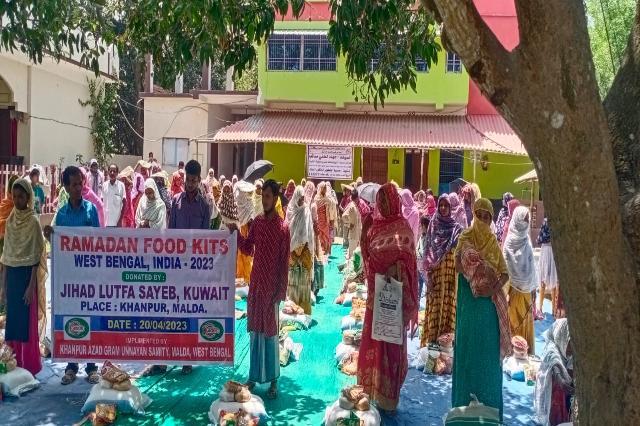
AWARENESS
KAGUS has been organized awareness meetings and rallies to implement MGNREGA while rural labours are more and more involved in the 100 day work right. We are engaged the all of Panchayet of Chanchal- II and Ratua-II block for all facilities implement for rural development by PRI. A view of local Panchayet Pradhans of Chanchal –II block in this year MGNREGA work done a record scale. Last year average work done 29 days and after awareness this year done this work up to 57 days. NYK also funded Mentor Club while we have been networking with 22 nos. small clubs and NGO in Chanchal-II block for the youth‟s development and sports.
